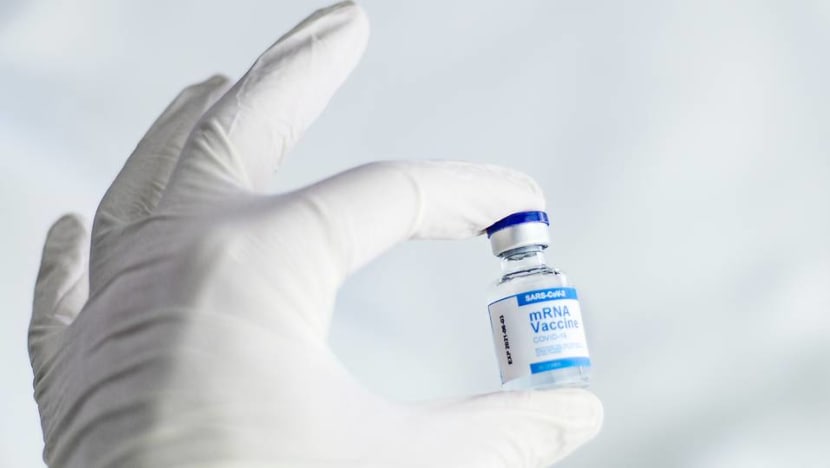HSA rebuts Swiss study reporting 'heart injuries' caused by COVID-19 mRNA vaccine boosters

A file photo of a vial of mRNA vaccine. (Photo: Unsplash)
SINGAPORE: The Health Sciences Authority (HSA) on Wednesday (Sep 6) disputed the findings in a Swiss study that reported "heart injuries" among a small percentage of people who had received COVID-19 mRNA vaccine boosters.
In a study published in the European Journal of Heart Failure, 22 out of 777 participants who received such vaccines had heart injuries.
Conducted on employees in a hospital in Switzerland, the study defined heart injury based solely on increased troponin levels, said HSA.
Troponin levels - a type of protein found in the muscles of the heart - are a marker for possible heart injury.
However, HSA added that increased troponin levels are not necessarily a cause for concern, particularly if there are no other corresponding signs or symptoms.
"The increase in troponin levels observed in the study were mild and transient," said the agency, adding that such increases can also be observed after strenuous physical activities.
"The observed increased troponin levels should not be interpreted as amounting to heart injury or myocarditis following vaccination."
HSA also noted that none of the cases in the Swiss study had any abnormal electrocardiograph (ECG) changes or developed any major adverse cardiac events within 30 days of vaccination.
Myocarditis, or inflammation of the heart muscle, is a recognised but rare potential risk following COVID-19 mRNA vaccination.
The reported rates for the bivalent vaccines for myocarditis are 0.2 per 1000,000 doses and 1.1 per 100,000 doses for the primary vaccination series of the monovalent vaccines.
"Of these rare myocarditis cases following vaccination, most were mild, with patients responding well to treatment," said HSA.
To mitigate this, precautionary measure on the avoidance of strenuous physical activity or exercise for two weeks following COVID-19 mRNA vaccination has been implemented since September 2021.
The benefit-risk profile of the vaccines remains positive, said HSA.
"The risk of myocarditis with COVID-19 infection is higher compared to that associated with COVID-19 vaccination," added HSA.
"As such, the benefits of COVID-19 vaccination continue to outweigh the known risks."
HSA said it would continue to closely monitor the safety of all COVID-19 vaccines used in Singapore and will inform members of the public if there are any significant new safety concerns.















